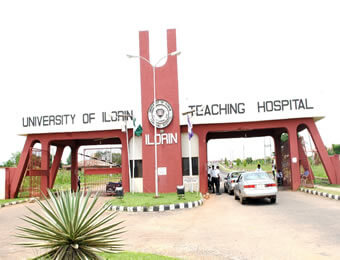Olatinwo said while infertility had raised many ethical, legal and social questions, the cost of managing it remained enormous and therefore required interventions of various strata of governments in Nigeria.
Delivering the 178th Inaugural Lecture of the University of Ilorin at the weekend, the don said the Assisted Reproductive Technology (ART) had become the most efficient method the world over, adding that it had assisted in removing the societal stigma of infertility among many couples.
Speaking on the topic, ‘Help for the Helpless and Hope for the Hopeless: the Medicine of Reproductive Possibility”, he said; “infertility should be made a public health issue because it is socially constructed, existing at the crossroads of medical and social realms.
“It’s management should, therefore, be given special consideration under the NHIS in order to ease the burden of the affected individuals.”
Olatinwo equally advocated for preventive strategies as a vital role in the overall prevention of infertility and child-maternal death in Nigeria.
At the event, moderated by the Vice Chancellor of the University, Professor Sulyman Age Abdulkareem, Olatinwo while lamenting the financial constraints of persons suffering from infertility to access the ART, believed that unless his propositions were dutifully considered, many Nigerian populations may die childless.
His words; “ART has emerged as one of the most widely adopted and successful medical technologies in the last century. While giving hope to millions of couples suffering from infertility, unfortunately, ART services are inaccessible to large sections of the population, mainly due to very high cost of treatment.
“ART also has presented new ethical, legal and social questions that society must address. Many countries have taken steps to regulate certain aspects of ART. However such is still in very rudimentary stages in Nigeria. ”
He added, “there is an urgent need for stakeholders (fertility specialists, clients, professional organizations, religious bodies, bio-ethicists, and government) in s developing countries, to formulate cultural and context-specific guidelines in order to address some of these ethical dilemmas.”
Although the UITH boss urged the government to improve on the stability of electricity generation and distribution in Nigeria, he added that the government should collaborate with private sector firms “who are currently the main providers of IVY services” by way of reducing or waiving taxes for IVF, drugs, and consumables.
ALSO READ: UITH to promote healthcare for elderly people ―Official
Besides, he urged the National Assembly to speedily pass the Bill on the establishment of the ‘Nigerian Assisted Reproduction Authority’, sponsored by the National Association of Fertility and Reproductive Health (AFRH-Nigeria), to serve as a starting point for regulation of ART practice in the country.
For Olatinwo, the ART unit he helped to establish at the UITH is rated one of best in the nation’s Public health sector just as he disclosed that the section had in the past few months of its establishment taken deliveries of over 30 babies including sets of twins and triplets.
The CMD while noting that infertility should not be viewed as female problems to the exclusion of men, disclosed that the recent statistics on infertility showed that the degrees of the reproductive deformity in women is the same as their male counterparts.






